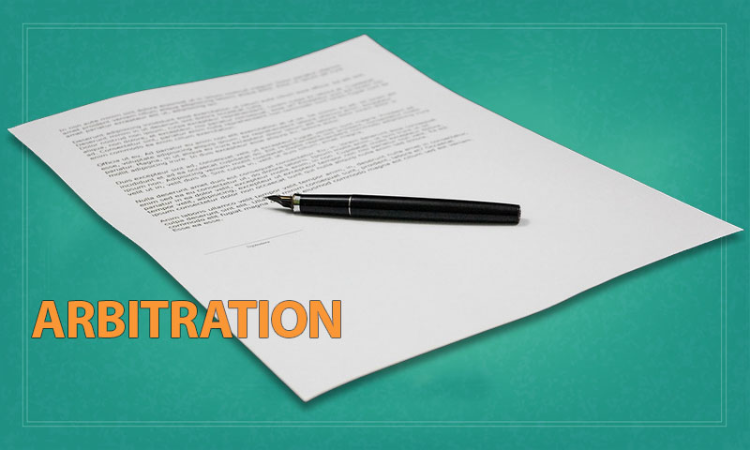Judicial Review Of Arbitration: How Far Can The Constitutional Courts Go?
Saurabh Mishra
12 March 2022 5:29 PM IST

The hydra headed Amazon—Future—Reliance dispute also throws up important questions concerning the role of judicial review in arbitration. In an India seated international commercial arbitration under the rules of Singapore International Arbitration Centre ("SIAC"), Future had applied to the Delhi High Court under Article 227 of the constitution of India to declare the continuation of the arbitration proceedings as contrary to law [CM (M) No.2 & 3 of 2022]. A single judge dismissed the petition on 03 January 2022 but in appeal a bench of two judges stayed the single judge's order as well as the arbitration proceedings.
To set a context, the first thing to note is that the High Court's review action of a wide range of bodies is under Article 226 of the constitution of India (commonly known as the writ jurisdiction. Article 227 vests with the High Courts the power of superintendence over all courts and tribunals within its territory. Arbitral tribunals fall under the High Court's jurisdiction under both these provisions.
Both provisions are part of basic structure of the Indian constitution. This doctrine was enunciated in the iconic Kesavananda Bharati v. State of Kerala, (1973) 4 SCC 225, in which it was argued, based on the German lawyer Dietrich Conrad's work, that there are certain limitations to amending the constitution. For instance, the majority in power could not amend the constitution to say that India would no longer be a democracy. The court ruled that the constitution has certain basic features that cannot be amended or taken away by any constitutional amendment. The doctrine developed over time and more categories were added to it. In L Chandra Kumar v. Union of India, (1997) 3 SCC 261, the Supreme Court ruled that Articles 226 and 227 were part of the constitution's basic structure.
So, a provision like Section 5 of the Arbitration and Conciliation Act, 1996 (A&C Act) that restricts intervention of any judicial authority except as provided under the A&C Act does affect the High Court's jurisdiction to intervene. But the availability of this plenary power does not mean that the Indian High Courts judicially review all aspects of arbitration. The Supreme Court has tried to devise some standards. In Deep Industries Limited v. ONGC Limited and another, 2019 SCC OnLine SC, the Supreme Court ruled that the High Courts should interfere against those orders of arbitral tribunal which are patently lacking inherent jurisdiction. This was a case where an arbitral tribunal's interim order was unsuccessfully appealed. An Article 227 petition was filed assailing the appellate court's order. The Supreme Court ruled that High Courts can exercise jurisdiction against judgments allowing or dismissing first appeals under Section 37 ACA, but with extreme circumspection, considering the statutory policy of the A&C Act so that interference is restricted to orders which are patently lacking inherent jurisdiction.
This test was clarified in another order dated 18.9.2020 in Punjab State Power Corporation Limited v. Emta Coal Limited and another, SLP (C) No.8482/2020, where in the Supreme Court clearly ruled that "a foray to the writ court from a Section 16 application being dismissed by the Arbitrator can only be if the order passed is so perverse that the only possible conclusion is that there is a patent lack of inherent jurisdiction" and "a patent lack of inherent jurisdiction requires no argument whatsoever—it must be the perversity of the order that must stare one in the face."
This is a reasonable working test laid down by the Supreme Court. However, in Bhaven Construction v. Executive Engineer, Sardar Sarovar Narmada Nigam Ltd. & another, (2022) 1 SCC 75, the test has been slightly expanded. The court said that "this power needs to be exercised in exceptional rarity, wherein one party is left remediless under the statute or a clear 'bad faith' shown by one of the parties. This high standard set by this Court is in terms of the legislative intention to make the arbitration fair and efficient."
The single judge in Amazon's case, by dismissing the petition, reached the right conclusion because the tribunal had adopted a particular course of proceedings and was going to hear the termination application filed by the Future group later; first dealing with the hearing of the expert witnesses as scheduled.
However, the single judge considered the question of jurisdiction in the latter part of the decision after first addressing the approach adopted by the tribunal. Such a course in my view displaces the emphasis from the most fundamental aspect of the matter, namely, that on the tribunal's orders (to take up the termination application at a later date) no question of lack of inherent jurisdiction could possibly arise. The 2-judge bench does not consider this aspect at all.
The question of constitutional court intervention might arise in two situations. One, in a situation where the A&C Act gives a specific remedy. Two, in situation where the A&C Act does not contemplate any remedy. The second will arise mostly in context of abuse of process during actual arbitration. The constitutional court has technically the power to intervene in both stages. But in my view, in the former cases, courts should never intervene. In the latter cases, courts should intervene in limited cases but always on the principle of patent lack of inherent jurisdiction.
The one and only question to be asked in the Amazon case was with reference to the orders under challenge: did the tribunal patently lack inherent jurisdiction to pass the orders under challenge. The answer is a self-evident no. The A&C Act confer on the tribunal the authority to regulate its procedure. The tribunal was later going to consider the issue of termination application filed by the Future group. A party cannot scuttle the power by arguing at what point in time the tribunal should exercise that authority.
Author:- Saurabh Mishra, Advocate-on-Record, Supreme Court of India. Views are personal.


